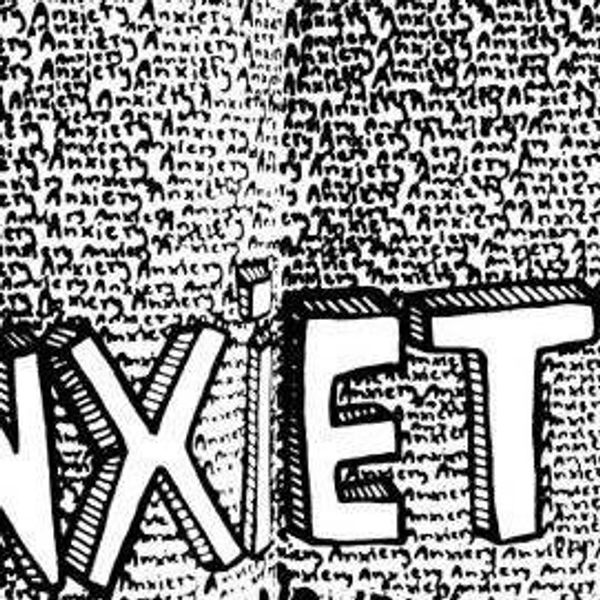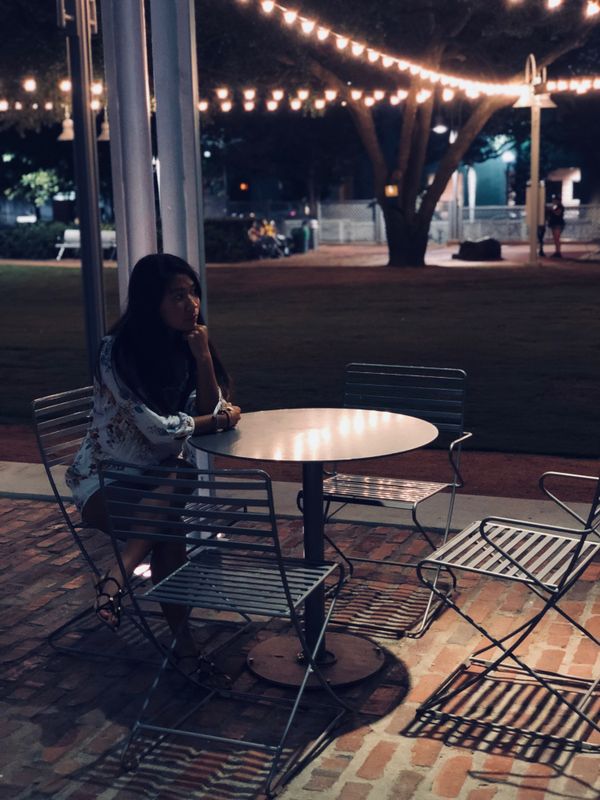I have depression. I also have anxiety. They’ve been with me for most of my life, and they never seem to go away.
Over the years, I found ways to cope, to keep them at bay. But in truth, I was fooling myself. I was tying a lion onto a leash and falling for the illusion that I was in control. But every once in awhile, the lion would break its restraints and roar.
Last April, I finally opened my mind to the possibility of medication. And I don’t know how common this is among people struggling with mood disorders, but I was scared.
Call it foolish, blame it on the anxiety, but I was terrified.
But eventually, I did talk to my doctor about medication. It was the best decision I've ever made.
So if you find yourself on the edge of the precipice, toeing the line between medication and self-reliance, here’s some encouragement to take the leap.
1. The Label
Aside from close family and friends, I'd kept my struggles with mood disorders largely private. I didn't want to seem like I was jumping on a bandwagon, blaming my issues on mental illnesses I didn't really have or be judged based on people's misconceptions of what depression and anxiety really are.
Asking for medication would make it more difficult to hide. It would become a part of who I was in a whole new way. It would shed light on my secret struggles. And it would invite judgement from others.
The key to overcoming these fears was a change in mindset. I had to focus on myself for once, not on others. I had to decide not to let my struggle be defined by anyone else's.
Just because other people are struggling with depression does not mean that I am not. There is not a bank of mental issues that depletes every time someone claims to be struggling. Stigmas, stereotypes, and misconceptions are all irrelevant. What is relevant is that I get the help I need.
2. Chemical Dependency
Having to take mood-altering medication every day freaked me out. I was worried about a lot of things. What if I missed a day? Would my depression get worse? Would I have to be constantly increasing my dosage as I became accustomed to it? Is this a contract I'm signing for the rest of my life?
I chalk this fear up to ignorance. Granted, every medication will have differing effects, but in my own experience, chemical dependency has not been an issue in the slightest.
If I miss a day, there's little change. Once I found a dosage that worked for me, the effects have held constant over time. I don't know how long I'll have to take them, but if doing so will help me get through the day, I'll keep at it as long as it takes.
3. False Happiness
The idea of medically-induced happiness seemed both revolting and pathetic.
I didn't want to be happy if it wasn't going to come from a genuine source. I imagined turning into a robot of cheer whose default setting was mindless joy, regardless of my circumstances.
But what I found was that the medication freed the joy within me I hadn't realized was there.
Once I was on the meds, I didn't feel happy all the time, but I was free to feel happy in a way I'd never been. They didn't prevent me from being sad, but they kept my sadness from consuming my whole being. I discovered full spectrum of emotion within me, making me feel normal and authentic and alive. My emotions became, rather than artificially constructed, more genuine than they've ever been.
4. Losing a Part of Myself
After I began thinking about antidepressants, I had a really scary realization about my depression.
I couldn’t imagine life without it.
The absence of my grief, anger, bitterness, and numbness seemed unbearable. They were my reality and security blanket. Clouds had been above me for so long that the distant sun seemed harsh and cruel.
I wanted to cling to the familiar thoughts because, while they were distorted, they were comforting. They were what made me, me.
The truth was exactly the opposite.
Antidepressants freed me to be the truest form of myself. I was the person I'd wished to be my entire adolescence. Things I thought were forever out of reach for me--confidence, joy, a truly genuine spirit--were suddenly integral to who I am. Rather than losing a part of me, I'd freed myself from a parasite that had been eating away my true self for years.
5. Giving Up
Depression and anxiety were more than just an emotional battle for me. I struggled deeply with my faith, juggling doubts and anger towards God and frustration with my weakness. I'd believed the lie that my depression was somehow a reflection of my relationship with God and, therefore, would get better as I grew in my faith. My struggle with depression was then evidence of my failure.
Taking meds, in my mind, was like telling God I was giving up on Him, that I was taking control and fixing myself without His help.
What I came to realize was that, sometimes, God uses outside forces to bring about His good work. In my case, this was antidepressants.
I had to deny the lie that God was responsible for my depression and it was my job to fix myself. I had to believe that my disorder had nothing to do with my relationship with Him. I had to believe that God wants the best for me.
And in this case, the best was medication.
I can now say with confidence that talking to my doctor about antidepressants helped me so much. I can’t promise they will work for everyone in the same ways, but if you are quickly losing control and at the end of your rope, please, don't let fear stand in the way of you becoming your true self. Consider taking the leap. It is so worth it.





















